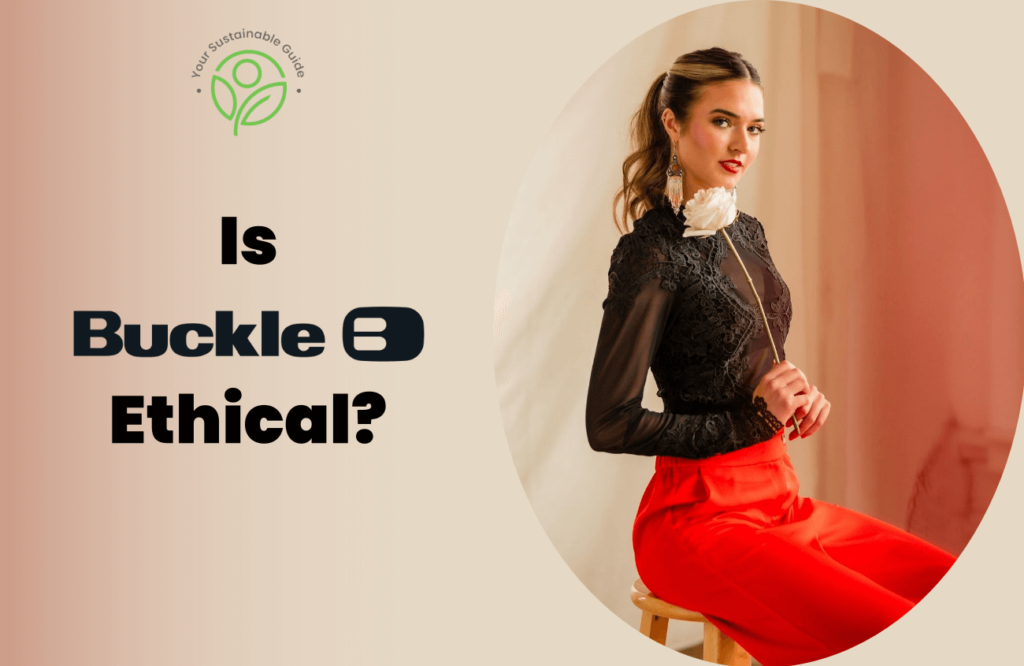Lululemon has carved a niche in the world of happening and high-performance activewear. Its yoga-inspired athletic apparel is designed to help you achieve the most sweaty pursuits. But while it helps people live an active lifestyle, it profits from exploiting disadvantaged garment makers. It also greenwashes, creating a facade of sustainability initiatives. Does that mean Lululemon is a fast fashion company?
Lululemon’s chart-topping leggings might be a celebrity favorite, but they are made from resource-intensive synthetic materials. Even its sweatshirts and tees are made from conventional cotton, despite the fact that greener alternatives exist. So while the company brags about sustainability, does it genuinely prioritize the well-being of people and the planet? Only one way to find out!

Is Lululemon Fast Fashion?
Yes, Lululemon is partially fast fashion because it overproduces garments more than needed. Its business model revolves around speedy production, frequent collection drops, high-impact toxic raw materials, and sweatshop manufacturing. Plus, it encourages overconsumption with tempting advertisements and offers, pushing you to keep adding to your athleisure collection.
The positive thing about Lululemon is, its clothes are not exactly trend-driven. This means they won’t go ‘out of style’ in a couple of months, so you can use them for as long as you want to.
Moreover, their activewear range is quite pricey. Take, for instance, the most-hyped Lululemon leggings, priced close to $90. These leggings have a crazy fan following as they hug the body so well that even a fierce cardio won’t budge them. So ultimately, they are usually bought by people who love to invest in luxurious activewear. However, the good news ends there!
Lululemon drops new collections every Tuesday. And every Thursday, the unsold stock is updated in their sale section named “We made too much,” at discounted pricing. Quite a clever way to push down old inventory, enticing consumers in a never-ending circle of shopping.
In its pretence of being ethical and sustainable, Lululemon is but one of the shocking greenwashing examples. Majority of its products are manufactured in developing countries offering cheap labor. Also, it doesn’t shy away from using synthetic materials that emit dangerous levels of CO2 emissions.
So while Lululemon is not entirely fast fashion, it’s an apparel brand that’s not high on ethics and sustainability.
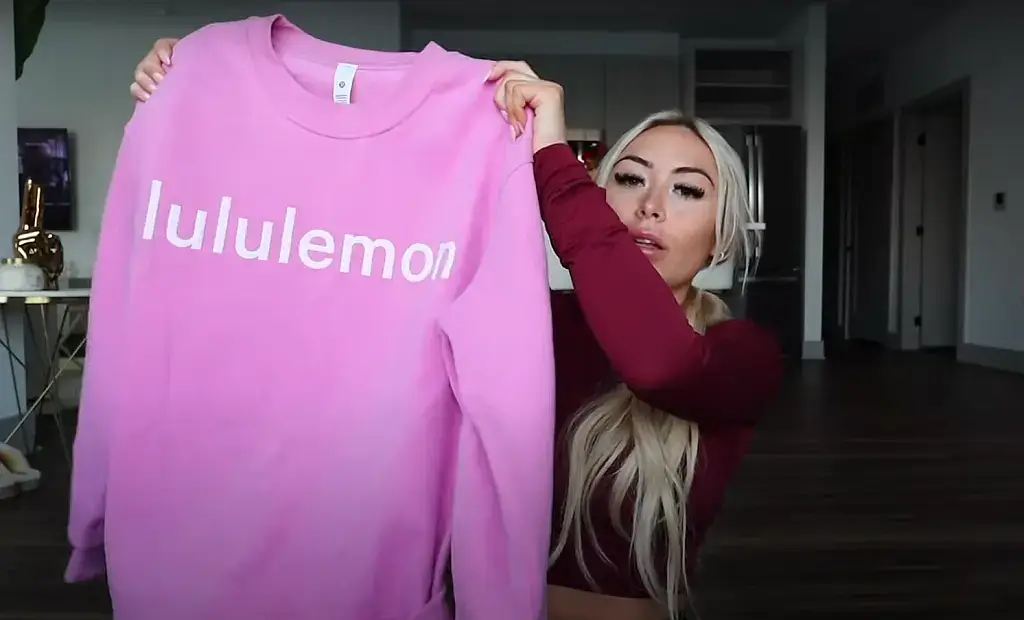
Is Lululemon Sustainable?
No, Lululemon is not completely sustainable. But the brand has big plans for sustainability (or so it says)! For now, only a fraction of Lululemon’s products are made using eco-friendly fabrics, like recycled polyester, lyocell, modal, etc. It heavily relies on toxic synthetic materials like virgin nylon, lycra, and spandex for crafting its products, including its bestselling leggings.
Lululemon claims sustainability as one of its core principles, but its efforts are not good enough. On its website’s sustainability section, the company talks about implementing ways to lower its its contribution to environmental impact of fast fashion. It plans to launch ‘Resell and Repair’ programs by 2025 to keep clothes out of landfills. Furthermore, it has laid down science-based targets to reduce 60% of carbon emissions generated from its offices, stores and supply chain by 2030.
However, Lululemon’s goals are not on track. There is no evidence that the brand has taken steps to eliminate hazardous chemicals and reduce water usage in its production process. Also, it has no plans to control its partner factories’ greenhouse gases and unsustainable approaches. There is no sign of minimizing its dependence on plastic packaging as well.
The brighter aspect? Lululemon is a member of third-party evaluators like the Sustainable Apparel Coalition and The Climate Group’s RE100. So, we can be hopeful that the company will walk the path of sustainability in the near future. It also plans to hit 100% renewable energy across its offices, stores, and factories in North America.
Overall Rating: 2
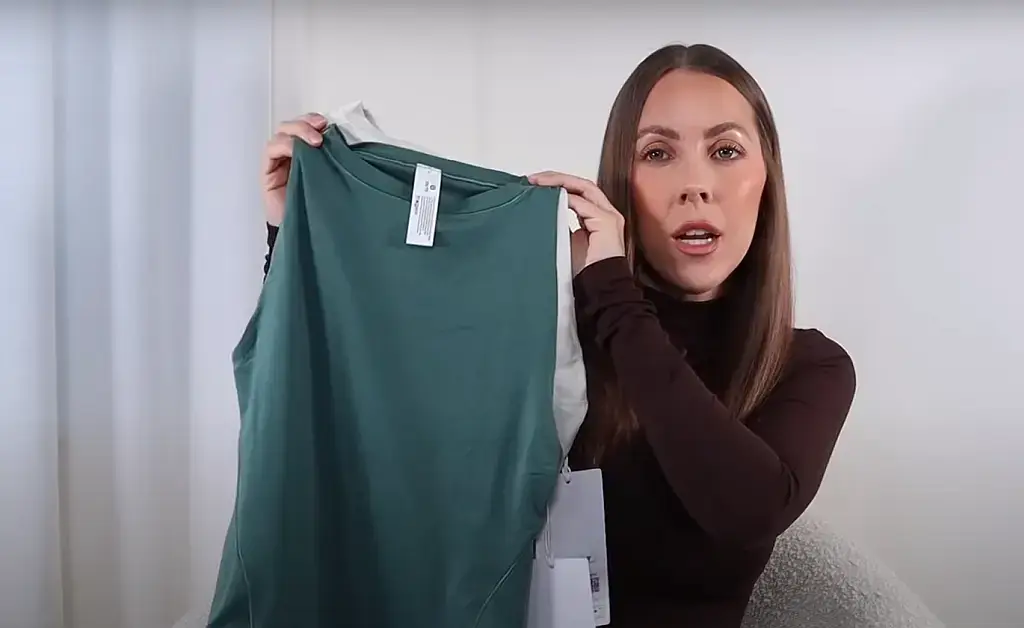
Is Lululemon Ethical?
No, Lululemon is not ethical. None of its factories are Fair Trade certified by third-party labor standards. Hence, there’s no guarantee that workers are paid fair wages, and their well-being is prioritized. In fact, reports by The Guardian prove that workers making its signature leggings in a Bangladesh factory are underpaid and overworked.
Labor Practices
Lululemon has a Vendor Code Of Conduct that states “zero tolerance” towards forced labor, bribery or corruption, unapproved facilities or subcontractors, etc. However, there is no proof that all of its suppliers abide by these policies. Also, no concrete evidence exists that the brand follows responsible practices to support diversity and inclusion (like gender equality at factories) in its supply chain.
Lululemon received a score of 52% on the Fashion Transparency Index, which is better than most fast fashion brands, but still not very positive. Reports have even revealed that female workers in its Bangladeshi factory are subjected to regular verbal and physical abuse. These actions primarily happen if they leave early from work or break any rules. Plus, they are forced to work overtime without receiving decent wages.
Child Labor
Lululemon claims that it has a zero-tolerance approach to child labor. However, it doesn’t own all of its production units. It mainly sources products from low-cost-production countries where people as young as 15 are eligible to work. So, with that in mind, it is quite unclear if the company is one of those that benefit from using child labor in fast fashion.

Sourcing Practices
Lululemon outsources manufacturing to developing countries with cheap labor. Its suppliers are scattered globally, with 60% of production taking place in China. The remaining 40% of manufacturing occurs in the U.S., Canada, Taiwan, Indonesia, Bangladesh, Vietnam, Sri Lanka, etc.
Lululemon has been associated with sourcing cotton from China’s Xinjiang region. This information raises concerns about the potential use of forced Uyghur labor in the brand’s supply chain.
Addressing all the labor-related issues, Lululemon has started to focus on workers’ welfare by supporting projects on health, meditation, and education initiatives. In 2022, it supported vendor grants to 12 different suppliers to initiate such philanthropic efforts.
But then, what about the rest of its supply chain?
Overall Rating: 1.5
Is Lululemon Cruelty Free?
No, Lululemon is not 100% cruelty-free. Since it’s an athleisure brand, it doesn’t use exotic animal skin and hair, fur, leather, or angora. But many of its products are made from wool and down.
The Canadian company claims that it sources its animal-derived materials responsibly, where the down are sourced from farms accredited by the Responsible Down Standard. However, the wool used by the company isn’t certified; hence there’s no telling about their origins.
For now, Lululemon states that all of its animal-derived materials will be certified or traceable by 2025.
Overall Rating: 2.5
Some of the Best Sustainable Alternatives to Lululemon
Breaking away from brands like H&M and Old Navy, shopping from sustainable fashion brands offering similar product lines to Lululemon is a way better and more conscious approach. Labels like Girlfriend Collective, Tentree, Wolven, and Threads 4 Thought are doing their best to make thoughtful clothing keeping the planet and its people in mind. Let’s check them out!
1. Girlfriend Collective
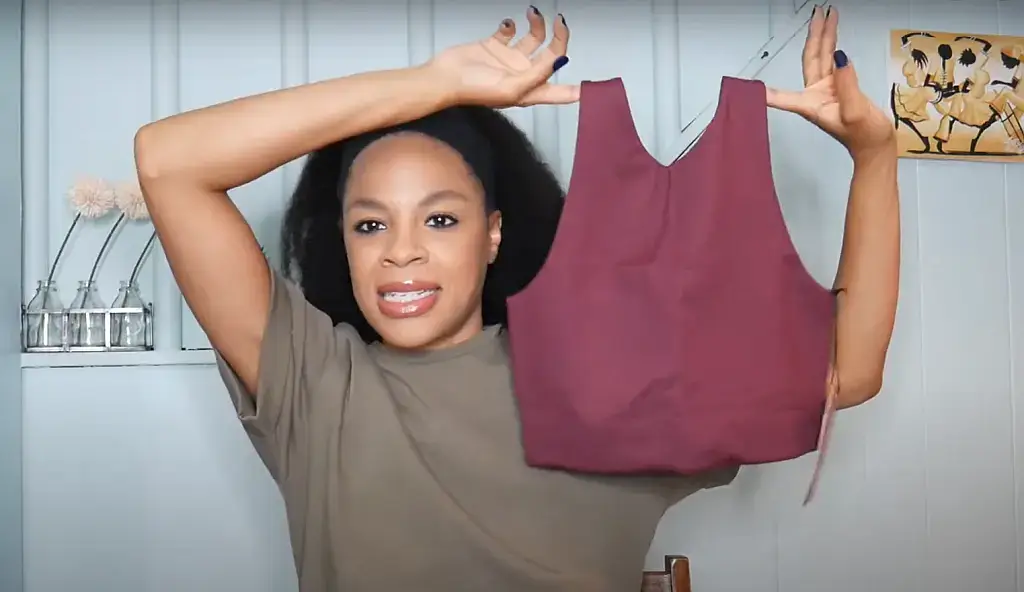
Looking for a dainty workout dress or a sizzling sports bra? Then Girlfriend Collective is at your service. As a sustainable activewear company, its website literally feels like athleisure heaven. You can shop from an array of leggings, tanks, sweatsuits, and workout bras that come in a line-up of vibrant and peppy colors. Girlfriend Collective engages in ethical manufacturing at SA8000 factories and uses recycled materials like ECONYL. Its high-quality athleisure clothing are size-inclusive and comes in sizes up to 6XL. It also has a recycling platform, “ReGirlfriend”, where you can send your used GC pieces in exchange for store credits. Plus, orders are shipped in 100% recyclable packaging.
2. Tentree
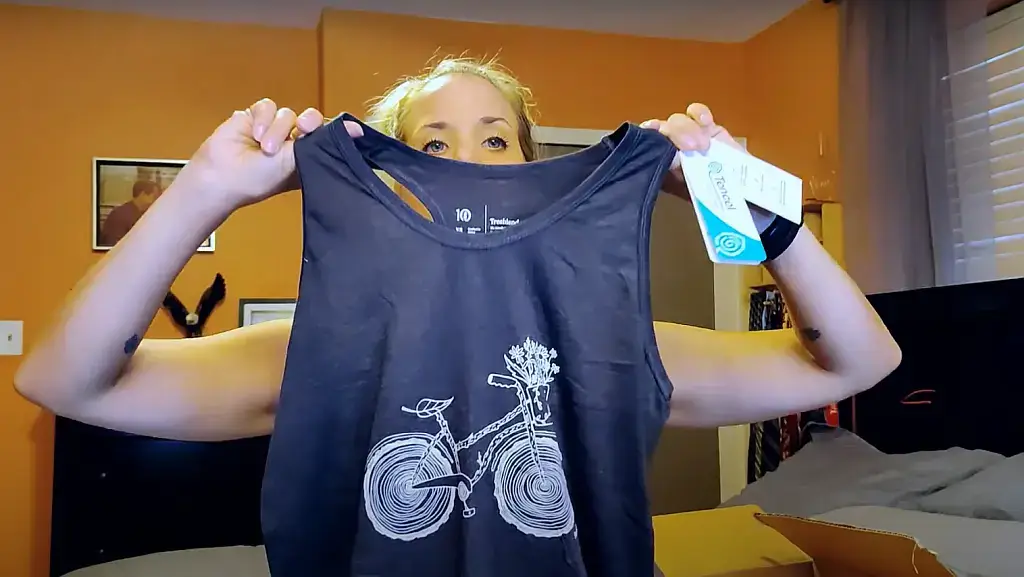
Tentree is an ‘Earth-First’ brand that creates everyday basics, activewear, and outerwear for men, women, and children. Designed for a sustainable world, its clothes are made with earth-friendly materials like hemp, lyocell, organic cotton, etc. With superior quality garments that are built to last, it ethically works with fair trade facilities. The brand is a believer in circularity and encourages its consumers to send their used garments for recycling. As a B Corporation, Tentree plants 10 trees for every sale made in an effort to regenerate ecosystems. So far, the Climate Neutral certified label has planted over 50 Million trees and plans to take the number to 1 Billion by 2030!
3. Threads 4 Thought

Threads 4 Thought was born with the goal of offering ethically-made sustainable garments for modern-day women, men, and kids. Founded in 2006, its collection includes clean wardrobe essentials and athletic wear to jazz up your morning run or yoga sessions. 100% of their products are made from the most eco-friendly and innovative raw materials available. Additionally, the label’s main factory recycles 80% of all its industrial wastewater. Every time you purchase from T4T, you vote for the change we all want to see in the apparel industry.
4. Wolven

Wolven is here to make sustainability sexy! The female-founded, community-based sustainable apparel brand creates the most stunning dreamy-printed activewear. With diversity, creativity, and body positivity at its core, it aims to dress women to help them feel empowered and confident, regardless of their size and color. Every garment is OEKO-TEX STANDARD 100 certified, as the brand uses sustainably sourced recycled materials like rPET to make its activewear. This BIPOC-owned label is also engaged in multiple carbon offset and give-back projects. Championing circularity through its Pre-loved platform, Wolven is a responsible business through and through!





